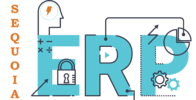In an era where digital privacy has become a precious commodity, the evolution of anonymous search engines represents a critical milestone for those who value their online confidentiality. The transformation from Ixquick to Startpage marks not merely a rebranding exercise, but rather a strategic enhancement in the ongoing battle to protect user anonymity whilst delivering quality search results. As concerns about data collection and targeted advertising continue to intensify, understanding this transition offers valuable insights into how privacy-focused tools adapt to meet the ever-changing demands of conscientious internet users.
Understanding the Transition from Ixquick to Startpage
The Legacy of Ixquick as a Privacy Pioneer
Ixquick established itself as a trailblazer in the realm of private search engines, championing complete user anonymity long before such concerns entered mainstream consciousness. The platform distinguished itself through an unwavering commitment to protecting searchers from the pervasive surveillance that characterised conventional search providers. Unlike Google alternatives that merely promised reduced tracking, Ixquick positioned itself as a meta-search engine that aggregated results from multiple sources whilst steadfastly refusing to log IP addresses or store search queries. This approach resonated with users who recognised the inherent risks in today's digital landscape, where internet surveillance and data collection have become standard practice. The service operated under Dutch jurisdiction, benefiting from some of Europe's most robust privacy legislation, which provided an additional layer of protection against government overreach and corporate data-sharing arrangements. By prioritising personal data protection above profit maximisation through targeted advertising, Ixquick carved out a distinctive niche amongst privacy-friendly tools available to concerned internet users.
Why startpage became the natural successor
The consolidation of Ixquick's functionality into Startpage represented a strategic decision to streamline operations whilst preserving the core principles that defined both services. Startpage had already demonstrated its capacity to deliver Google search results without compromising user confidentiality, making it the logical inheritor of Ixquick's privacy-focused mission. Based in the Netherlands with its advantageous privacy laws, Startpage offered a refined approach that addressed some limitations of the older meta-search model. Rather than aggregating results from numerous smaller engines, Startpage established a proxy relationship with Google, enabling users to access the world's most comprehensive search index whilst maintaining complete anonymity. This transition allowed the parent company to concentrate resources on perfecting a single, superior product rather than maintaining parallel platforms. The merger ensured that users seeking anonymous browsing would benefit from enhanced features and more robust privacy protection mechanisms. The move also reflected broader industry trends towards consolidation, where efficiency gains could be reinvested into improving security infrastructure and user experience rather than splitting development efforts across multiple platforms.
Core features that define startpage's anonymous browsing experience
Advanced privacy protection mechanisms in 2024
Startpage's architecture incorporates multiple layers of protection designed to shield users from the various tracking methods employed by data-hungry corporations and surveillance agencies. The service implements sophisticated IP address masking technology that prevents Google from identifying individual searchers, effectively severing the connection between search queries and personal identity. Unlike conventional incognito mode, which merely prevents local storage of browsing history, Startpage's approach ensures that no identifying information reaches the original search provider. The platform operates under a strict no-logs policy, meaning that search terms, timestamps, and user behaviour patterns remain completely unrecorded. This commitment extends to refusing participation in targeted advertising schemes that have become ubiquitous across the internet. The system also employs encryption protocols to protect data in transit, adding another barrier against potential interception by third parties. For users concerned about filterbubbles, where search results become increasingly personalised based on past activity, Startpage delivers unbiased results free from the algorithmic manipulation that characterises personalised search experiences. The service has also integrated proxy technology that allows users to visit websites anonymously, extending privacy protection beyond the initial search phase. These mechanisms work in concert to create a comprehensive shield against the myriad threats to digital privacy that pervade modern internet usage.
Search quality without compromising user confidentiality
One persistent criticism of private search engines has been their purported inferiority in result quality compared to mainstream alternatives, yet Startpage effectively dismantles this argument through its unique positioning. By serving as an intermediary that queries Google's index on behalf of users, the platform delivers search results of identical quality to those obtained directly from Google, but without the accompanying surveillance apparatus. This approach represents a significant advantage over other privacy-focused competitors such as DuckDuckGo, which primarily sources results from Yahoo and consequently may not match Google's comprehensive coverage. The service displays untargeted advertisements based solely on search terms rather than user profiles, generating revenue without compromising the fundamental privacy principles that define its mission. Startpage also supports advanced search operators and filters that enable users to refine results with precision, ensuring that the privacy-first approach doesn't necessitate sacrificing functionality. The platform's interface remains clean and intuitive, avoiding the cluttered advertising that characterises many commercial search engines. For users who occasionally require features from other search providers, the system accommodates quick transitions without storing this preference data. This combination of Google-quality results with ironclad privacy protections positions Startpage as a practical solution for those unwilling to accept the false choice between search quality and personal data protection.
Comparing Ixquick and Startpage: What's Changed and What's Improved

Technical Enhancements in the Latest Version
The consolidation into Startpage enabled significant technical improvements that wouldn't have been feasible whilst maintaining separate platforms. The unified service benefits from streamlined server infrastructure that delivers faster response times and more reliable performance compared to Ixquick's distributed meta-search approach. Modern encryption standards have been implemented throughout the system, providing enhanced protection against increasingly sophisticated surveillance techniques. The platform has also strengthened its defences against bot detection systems that can sometimes create friction for privacy-conscious users, particularly those employing VPN services or accessing the internet through Tor networks. Startpage's current iteration includes improved handling of JavaScript requirements, which had occasionally created compatibility issues with certain browsers or security configurations. The service has refined its CAPTCHA implementation to balance security requirements against user convenience, reducing the frequency with which legitimate users encounter verification challenges. Backend improvements have enhanced the system's capacity to handle high-volume traffic without triggering protective measures that might temporarily suspend user connections. These technical refinements represent the kind of focused development that becomes possible when engineering resources concentrate on perfecting a single platform rather than maintaining parallel services with overlapping functionality.
User interface and experience upgrades
Beyond the technical infrastructure, Startpage has invested considerably in refining the user-facing elements that determine everyday satisfaction with the service. The interface adopts a minimalist design philosophy that eliminates visual clutter whilst maintaining immediate access to essential features. Navigation has been simplified to accommodate both privacy novices and technically sophisticated users who may wish to configure advanced settings. The platform now offers enhanced customisation options that allow users to adjust display preferences, result density, and regional settings without creating persistent profiles that would undermine privacy commitments. Mobile responsiveness has been dramatically improved, recognising that an increasing proportion of searches now originate from smartphones and tablets where screen real estate demands careful consideration. The service has also introduced clearer explanations of its privacy mechanisms, helping users understand precisely how their searches remain anonymous and what protections apply at each stage of interaction. Integration with privacy-focused browsers such as Brave Search has been refined, creating seamless experiences for users who adopt comprehensive privacy strategies across multiple tools. These interface enhancements reflect an understanding that privacy tools must deliver not only robust protection but also sufficiently pleasant user experiences to encourage sustained adoption among individuals transitioning away from surveillance-based alternatives.
Why complete anonymity matters for modern internet users
Privacy risks in today's digital landscape
The contemporary internet environment presents unprecedented challenges to personal privacy, with data collection having evolved from a secondary business activity into the primary economic driver for major technology platforms. Search engines operating under traditional models accumulate vast repositories of information that reveal intimate details about users' interests, concerns, health conditions, financial situations, and political inclinations. This data frequently finds its way into the hands of third parties through sharing arrangements that users may not fully comprehend despite nominally consenting through lengthy terms of service documents. Government agencies have demonstrated both the capability and willingness to access these information troves, often through mechanisms that bypass traditional warrant requirements. The aggregation of search history with location data from mobile devices creates profiles of such granular detail that anonymity becomes virtually impossible under conventional browsing practices. Targeted advertising, whilst often dismissed as merely annoying, actually represents visible evidence of constant surveillance that commodifies human attention and manipulates behaviour in ways that extend far beyond commercial transactions. The filterbubbles effect further distorts information access, creating personalised realities where search results reinforce existing beliefs rather than challenging them with diverse perspectives. These accumulated risks justify the adoption of private search engines not as paranoid overreaction but as rational response to documented threats that affect everyone who uses the internet.
Practical benefits of using fully anonymous search engines
Adopting anonymous search engines delivers tangible advantages that extend beyond abstract privacy principles to affect daily internet experiences. Users immediately gain freedom from the manipulative pricing strategies that e-commerce platforms employ when they detect searches for particular products, avoiding the dynamic pricing that punishes perceived purchasing intent. Research activities become genuinely private, enabling individuals to investigate sensitive health conditions, legal questions, or political topics without fear that this information might later surface in embarrassing or damaging contexts. Journalists and researchers benefit from accessing unfiltered results that haven't been tailored based on past behaviour, supporting more thorough investigation and reducing confirmation bias. The absence of tracking also means that searches performed on shared devices don't contaminate recommendations or advertisements seen by other users, preserving confidentiality in household or workplace environments. Combining services like Startpage with complementary tools such as password managers, VPN services like ExpressVPN with its presence across numerous countries, and open-source software creates layered defences that dramatically reduce digital vulnerability. For those concerned about internet surveillance or simply uncomfortable with the asymmetric information relationship between users and technology companies, anonymous search represents an accessible first step towards reclaiming control over personal information. The modest effort required to switch default search providers yields disproportionate benefits in terms of reduced exposure to data collection, making it among the most efficient privacy improvements available to typical internet users.





















